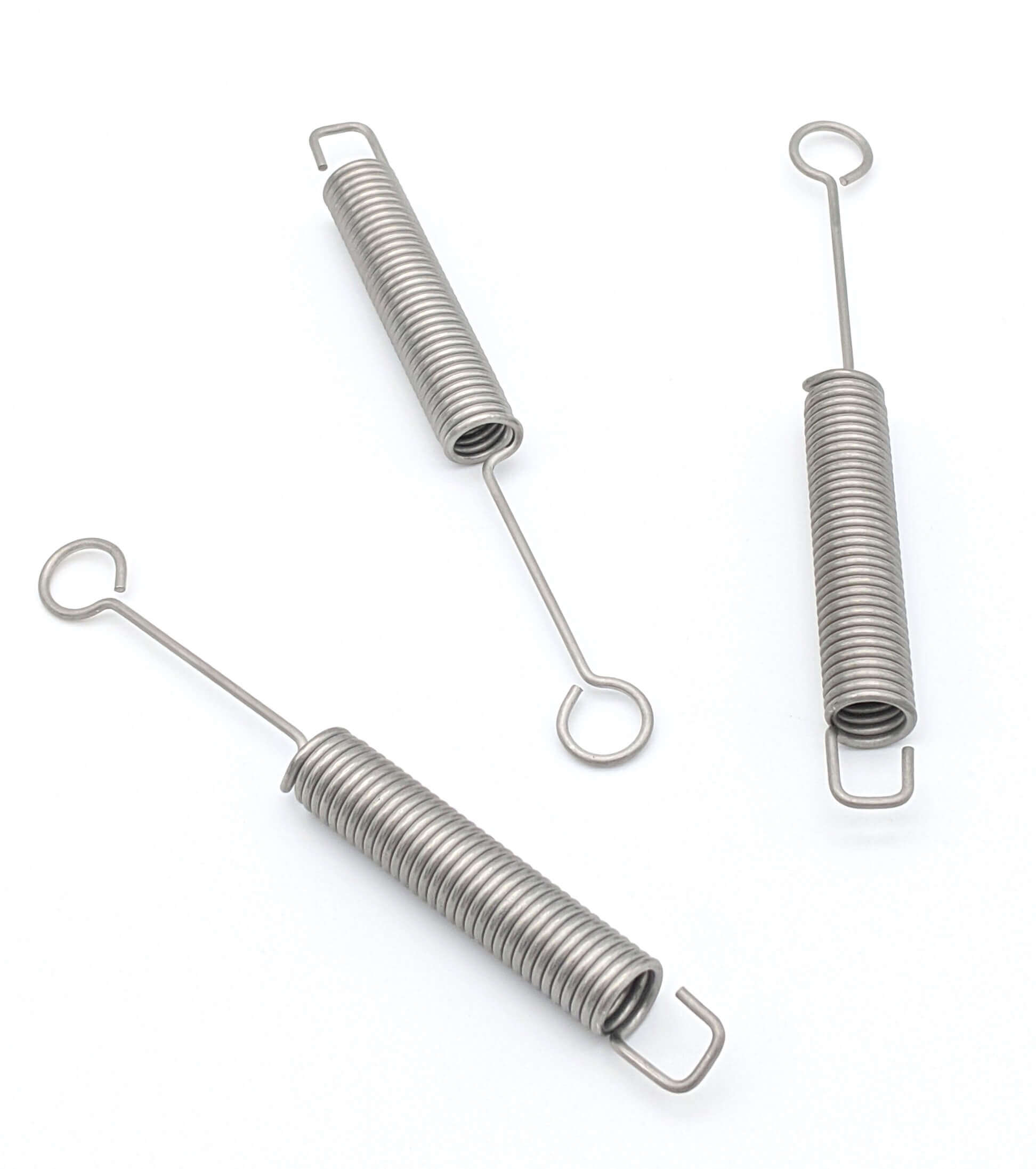Get unique, complex parts easily. No matter your requirements, Chaoyi Spring creates hard-to-produce coil springs and wire forms.
Let us help you create the custom wire form you need, from S-hooks and J-hooks to utility hooks and more.
We work closely with customers across a wide range of industries, helping them design and manufacture made-to-order parts.
Why choose Chaoyi Spring? We prioritize customer-focused collaboration, modern equipment and the latest technology to make your parts per print.
Find the information and guidance you need, from measuring a spring to learning about materials, placing an order and much more.
Torsion spring suspension, a specialized system utilizing torsion springs to control vehicle movement, offers unique advantages and complexities. This article delves into the workings, benefits, and challenges associated with torsion


Torsion spring suspension, a specialized system utilizing torsion springs to control vehicle movement, offers unique advantages and complexities. This article delves into the workings, benefits, and challenges associated with torsion spring suspension, providing a comprehensive understanding of its application in automotive and industrial settings.

Torsion spring suspension is a type of vehicle suspension system that uses torsion springs to control the vertical movement of the wheels. Unlike traditional coil spring or leaf spring systems, torsion springs operate by twisting rather than compressing or bending. This twisting action generates resistance, allowing the suspension to absorb shocks and maintain vehicle stability.
Torsion spring suspension typically consists of a solid, cylindrical bar known as a torsion bar. This bar is anchored at one end and connected to the wheel's control arm at the other. When the wheel encounters a bump or dip in the road, the control arm moves, causing the torsion bar to twist. The torsion bar's resistance to twisting provides the spring force that supports the vehicle's weight and dampens vibrations.
Torsion spring suspension offers several advantages over conventional spring systems:
While offering notable benefits, torsion spring suspension also comes with some drawbacks:
Torsion spring suspension finds wide application in various industries, including:
In automotive applications, torsion spring suspension is often preferred for its space efficiency and handling benefits. It's particularly popular in front-wheel-drive vehicles, where the engine and transmission occupy valuable underbody space.
The suspension's ability to maintain a stiff ride is crucial for achieving a responsive handling experience. However, this stiffness can come at the expense of ride comfort, especially on rough or bumpy roads.
Torsion spring suspension plays a critical role in industrial vehicles and machinery, where durability and load-carrying capacity are paramount. Their robust design and high strength make them ideal for handling heavy loads and withstanding harsh operating conditions.
Industrial vehicles, such as forklifts, rely on torsion springs to maintain stability while lifting and moving heavy objects. Cranes also utilize torsion bars to support the hoisting mechanism, ensuring precise and reliable operation.
Torsion spring suspension is just one type of suspension system used in various applications. It stands out from other common types, such as coil spring and leaf spring suspension, in its unique operation and characteristics.
Coil Spring Suspension: This is the most widely used type of suspension, offering a balance between ride comfort and handling. Coil springs provide a relatively soft ride, absorbing bumps and dips effectively. However, they can be more complex than torsion springs, requiring more space and potentially leading to higher repair costs.
Leaf Spring Suspension: Leaf springs are typically used in heavy-duty trucks and commercial vehicles. They are robust and durable, capable of handling high loads. However, they are often less comfortable and can be more prone to noise and vibration.
The choice of suspension system ultimately depends on the specific requirements of the vehicle or application. Each type has its advantages and disadvantages, and engineers consider factors such as weight, space constraints, desired ride quality, and handling characteristics when selecting the optimal suspension.
Torsion spring suspension offers a distinct approach to vehicle and industrial suspension design, providing a unique balance between handling, space efficiency, and durability. Its compact nature makes it suitable for vehicles with limited underbody space, while its stiffness enhances handling and control. However, the trade-off lies in ride comfort, which may be compromised for the sake of these benefits.
Ultimately, whether torsion spring suspension is the right choice depends on the specific needs and priorities of the application. Carefully weighing the advantages and disadvantages will help determine if torsion springs provide the optimal solution for your vehicle or machinery.
In conclusion, torsion spring suspension presents a compelling solution for applications demanding a balance between handling, space efficiency, and durability. By understanding its workings, advantages, and limitations, users can make informed decisions regarding its suitability for their specific requirements. Torsion springs continue to play a significant role in automotive and industrial settings, proving their value in both compact and heavy-duty applications.
Browse some of the custom wire forms and springs that we manufacture. Don’t see what you need? We specialize in made-to-order products that meet your application requirements.
Visit Our GalleryNeed a custom wire form or coil spring? We make it work. Fill out the contact form and a representative will respond within 1 business day. If you have a PDF or CAD file, you can submit to request a quote.